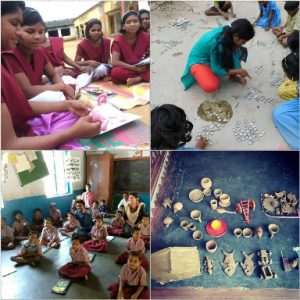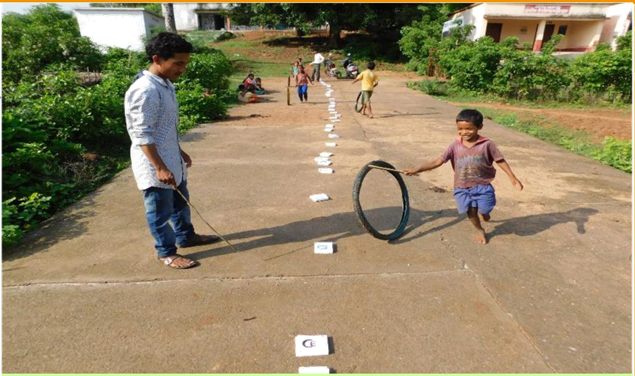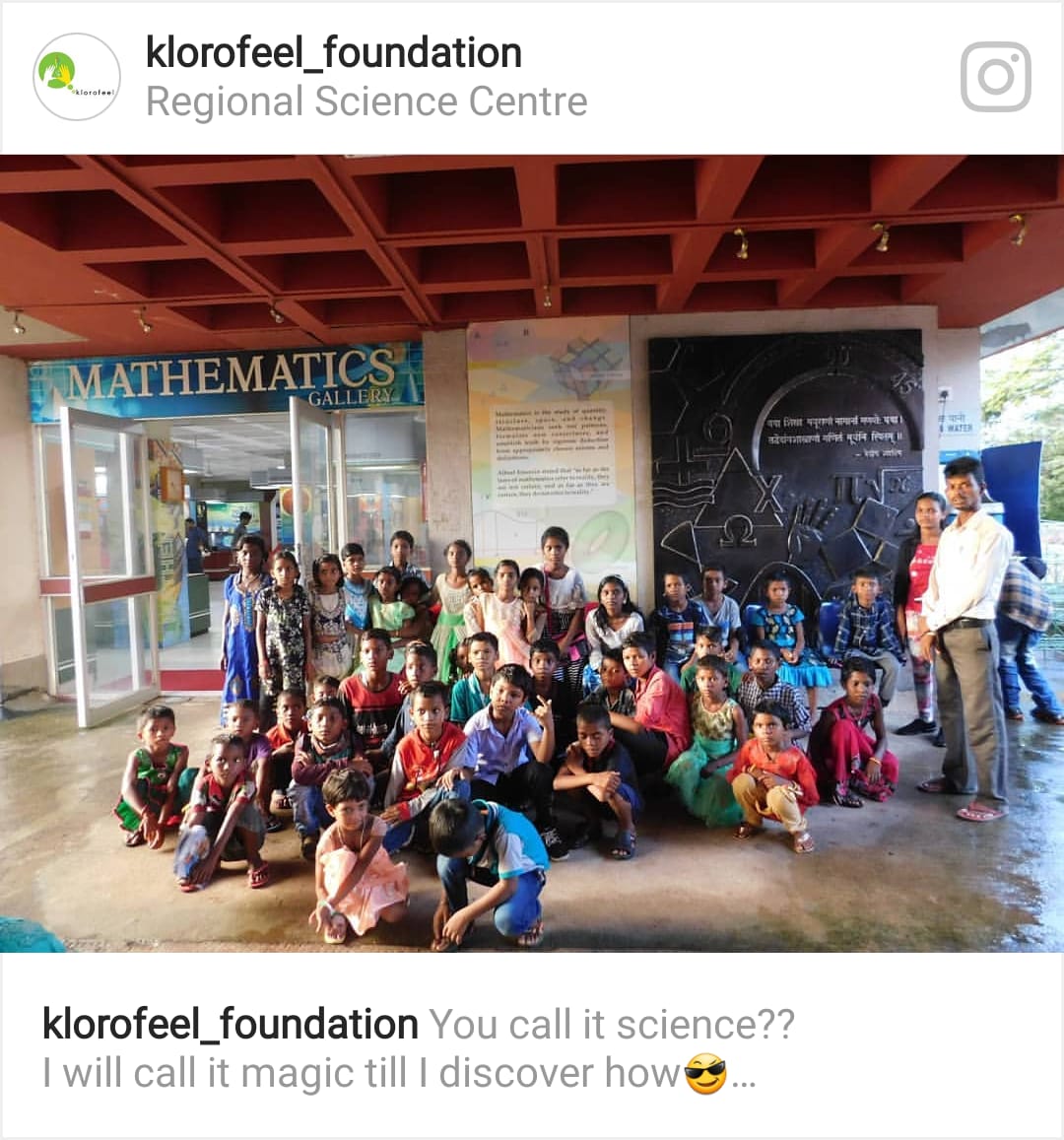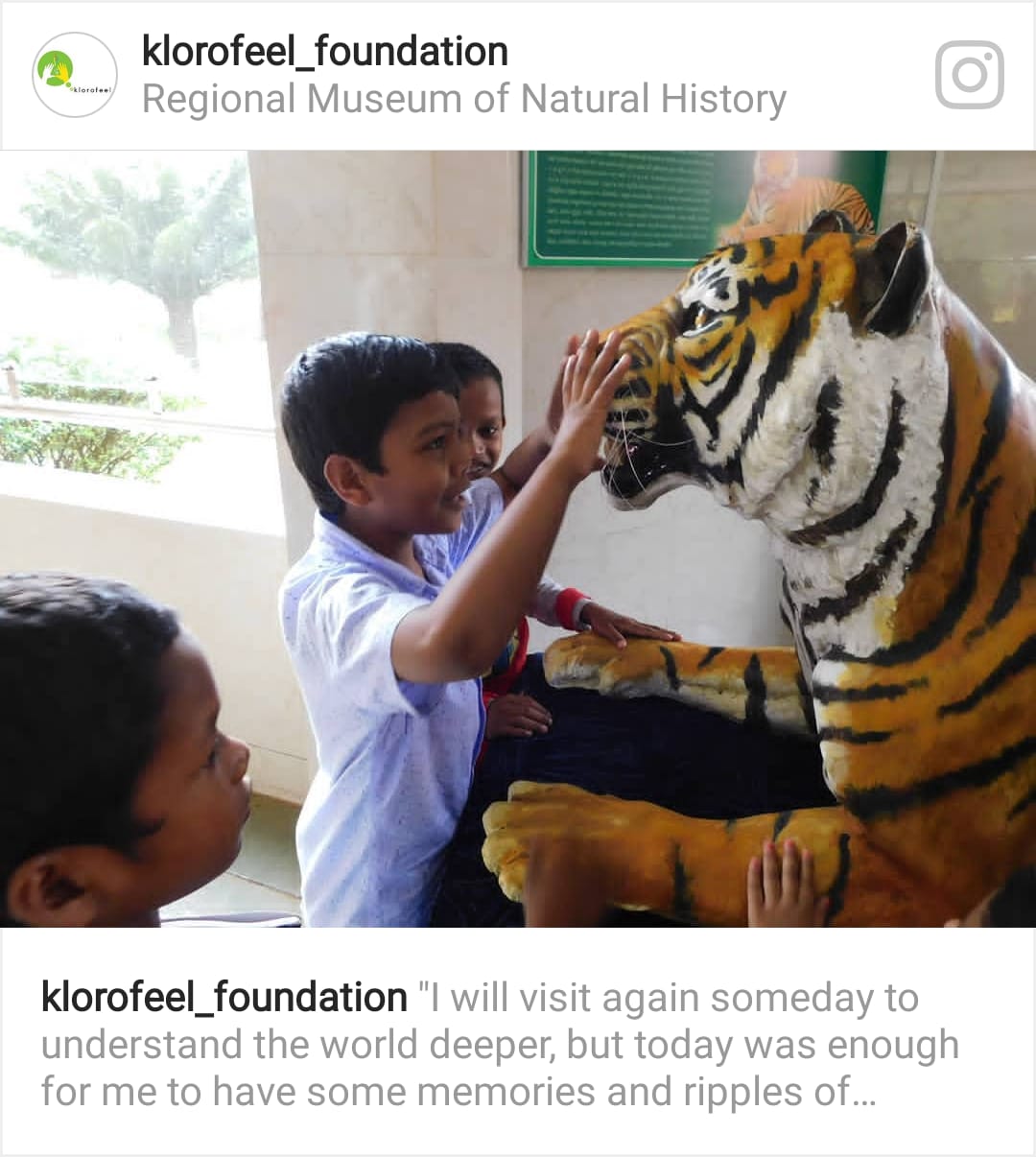Education

Harsha Trust, in partnership with Klorofeel Foundation, has been creating an enabling environment; where learning is fun-filled and situation-specific.
The intervention aims to inculcate a cutting-edge at imparting pertinent knowledge. While the children are learning, we emphasise an integrated approach involving the head, heart, and hands. The model contests the centralised processes of choosing a standard curriculum and criteria for teacher selection. We do not engage in the practice of teaching similar lessons to every child, regardless of context or level of preparation, and assigning grades based on a set assessment.
The teacher’s role in this learning centre is to inspire and create curiosity for the children to discover their appropriate approach to learning. Parents are equally involved so that they can create the same enabling environment at home.
This change has been piloted through nine learning centres in eight villages of Bissam Cuttack in Odisha since June 2017. The impact of the intervention has created much positive energy amongst the school dropouts.
Currently, we have 104 Joyful Learning Centres in rural areas of the Koraput, Nawrangpur and Rayagada districts of Odisha. The operational area is among the economically most deprived, having the largest ratio of BPL families.
Harsha Trust and Klorofeel aim to reach more than 680+ districts across the country with almost 6,000 passionate professionals to transform education. This education system does not ignore the local context and works on the local needs by building local entrepreneurship and support systems bringing development to the particular area.

Let’s meet Charan…..
Charan is a student studying in the first standard at Klorofeel Learning Centre. He started noticing that he was lagging in learning alphabets, words, counting and other basic skills compared to his classmates. Some people pointed out this scenario, which may have affected him mentally.
Activities and games are essential to this learning centre, and “hoop rolling games” caught Charan’s attention. So often, he used to shy away from interactions but eventually came forward to request people to start the hoop rolling games.
Eventually, Charan started taking the initiative, asking for help, improvising, joyfully presenting what he had learnt, and comfortably accepting what he didn’t know. He knew many basic skills, but traditional assessment methods couldn’t capture his learning.
The hoop rolling activity was infused with a lot of language learning. This activity gave Charan a comfortable platform to express his learning and limitations. This instance was collective learning for all, including Charan, who conceptualized activities that interested children, integrated the learning into action, and evaluated the learning positively yet superficially.


